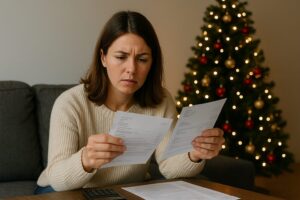Most people want to pay off their debt, but it can become difficult when your paycheck barely covers the bills that you have. If you’re constantly feeling like you’re putting money towards debt that doesn’t seem to be reducing, or if you simply don’t have enough money to put towards existing debt, you need to take some immediate steps.
- Determine your spending habits. If you really want to know how to get out of debt with no money, then the first thing you need to know is how you spend each and every penny. If you aren’t sure, review the last three months’ bank statements or faithfully write down what you spend in a week. Do not leave anything out – whether it’s your morning coffee or after-work drinks. It is really difficult to figure out how to attack your debt if you don’t know where your money is going.
- Assess your spending. Now that you know where your money is going, you need to assess your spending. Sometimes we spend money on things that we don’t need, like an expensive cable package when we really only watch Netflix, or unlimited phone calls when all we do is text. Go through your spending and see where you can reduce your spending. It might be difficult to try and reduce certain areas, but you need to be disciplined if you want to get out of debt. Once you know where you can save, move on to making a budget.
- Make an honest budget. Making a budget is not an exercise in how you want to live and spend in the future. Budgeting starts with an accounting of your income and spending right now. You have to be honest with yourself. If you need that morning coffee and you know you are going to get it, budget it in for now. Cutting your daily coffee out of your budget but then continuing to buy it will only hurt you in the long run. Don’t be afraid to put wants in your budget – as long as it’s reasonable and you can afford it. Cut out only the things you truly can’t live without, and know that it might only be temporary. Budgets can be adjusted up as you go along.
- Don’t forget to save. When you make a budget, don’t forget to add in a small amount that goes towards savings. Becoming debt-free is important, but it’s also important to have money tucked away, and watching that money grow can be a great motivator to control your spending.
- Prioritize your debt. Put your debts in the order of priority that you want to pay them off. Ideally, you want to tackle higher-interest debt first, because it will cost you less in the long run. Another tactic is to pay off the lower amounts first and pay the minimum payment on the others. This way, when you get to the larger debts, you’ll be able to make larger payments on them. However you decide to prioritize, be sure to stick to your plan and give it time to work.
- Leverage small payments. If you get a small amount of money that you were not expecting, like a bonus at work or a tax refund, add it onto the debt you are currently paying off. A few small amounts here and there can add up to a sizeable amount over time.
- Be patient. If you didn’t create your debt in a week, then chances are it will take more than a week to get it all paid off. Stick to your plan and re-evaluate after some time or set a benchmark to review your debt plan after each debt is paid off.
Once you’ve got your spending managed, a solid budget in place and a plan to pay your debts, you’ll feel more in control of your debt instead of feeling like your debt is controlling you.
If you feel like you need help tackling your debt, our certified credit counsellors can help. Contact us today for a free, no-obligation consultation.






